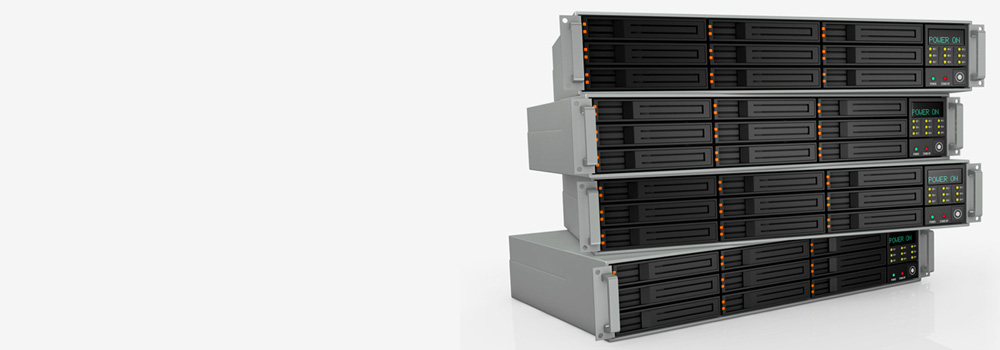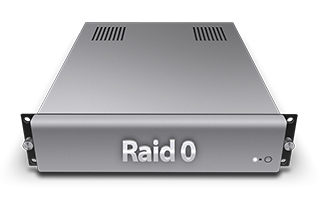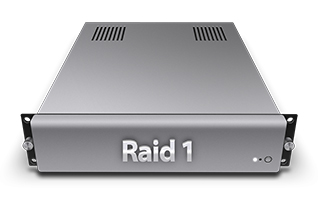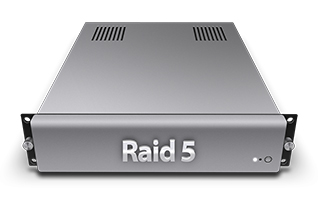Raid 0, Raid 1, Raid 5, Raid 10 Data Recovery Specialist in Newcastle upon Tyne – 25 Years of Expertise
With over 25 years of experience, we are Newcastle’s trusted experts in Raid Data Recovery, providing professional services for all types of RAID systems, including software RAIDs, hardware RAIDs, NAS devices, large NAS setups, and rack RAID arrays. No matter the issue, our team of specialists is here to recover your critical data.
Comprehensive RAID Recovery Services
Supported RAID Configurations
We recover data from all major RAID configurations, including:
- RAID 0 (Striping)
- RAID 1 (Mirroring)
- RAID 5 (Striping with Parity)
- RAID 10 (Mirroring + Striping)
Supported RAID Systems and Brands
We recover data from leading RAID brands, including:
- Dell EMC
- Hewlett Packard Enterprise (HPE)
- Synology
- QNAP
- NetApp
- Western Digital (WD)
- Seagate
- Buffalo Technology
- Drobo
- Netgear
- Lenovo
- Intel
- ASUS
- Promise Technology
- LaCie (A Seagate Company)
- IBM
- Adaptec by Microchip
- Areca
- Thecus
Supported Hard Drive Interfaces
Our recovery services cover all major hard drive interfaces, including:
- SATA (Serial Advanced Technology Attachment)
- NVMe (Non-Volatile Memory Express)
- M.2 Interface
- U.2 Interface
- SCSI (Small Computer System Interface)
- SAS (Serial Attached SCSI)
- PCIe (Peripheral Component Interconnect Express)
Supported Hard Drive Manufacturers
We recover data from drives made by:
- Seagate
- Western Digital (WD)
- Toshiba
- Samsung
- Hitachi (HGST)
- Kingston Technology
- Crucial (Micron Technology)
- SanDisk (A Western Digital Company)
- ADATA
- Fujitsu
- Maxtor
- Corsair
Common RAID Issues We Recover From
RAID 1 Issues (Mirroring)
-
Simultaneous Failure of Both Drives
- Data redundancy is lost, requiring recovery from failed drives.
-
Logical Corruption
- File system errors or partition corruption make data inaccessible.
-
Controller Failure
- The RAID controller malfunctions, disrupting mirroring.
-
Accidental Deletion of Files
- Files are deleted and mirrored across drives, complicating recovery.
-
Accidental Formatting
- Both drives are formatted simultaneously, erasing all data.
-
Drive Not Recognized
- One or both drives fail to mount, breaking the RAID.
-
Power Surges or Electrical Damage
- Damage to the RAID controller or drives due to voltage spikes.
-
Failed RAID Rebuild
- Rebuild fails, leaving the array in an inconsistent state.
-
Disk Initialization Issues
- Drives mistakenly initialised, overwriting RAID metadata.
-
Firmware Corruption
- Malfunctioning firmware prevents the RAID array from working.
RAID 0 Issues (Striping)
-
Single Drive Failure
- A single drive failure results in complete data loss.
-
Bad Sectors
- Corruption of one drive’s sectors disrupts the entire array.
-
Logical Corruption
- Errors in the file system cause the entire array to fail.
-
Power Failure During Write Operations
- Data becomes inconsistent across stripes, leading to corruption.
-
Accidental Reformatting
- User error results in formatting one or more drives in the array.
-
Overwritten Data
- New data overwrites striped data, complicating recovery.
-
Array Configuration Loss
- RAID metadata is lost, making the array unrecognizable.
-
Physical Damage to Drives
- Damage to one or more drives disrupts the entire RAID array.
-
Firmware Update Issues
- Failed or incompatible firmware updates affect performance.
-
Controller Failure
- RAID controller malfunctions, breaking the array’s operation.
RAID 5 Issues (Striping with Parity)
-
Multiple Drive Failures
- Loss of two or more drives causes data loss, even with parity.
-
Failed Parity Calculation
- Corrupted parity data prevents rebuilding the array.
-
Rebuild Errors
- Errors during RAID rebuild result in data inconsistencies.
-
Disk Removal or Reordering
- Drives are removed or reinstalled in the wrong sequence, breaking the array.
-
Bad Sectors on Parity Drive
- Corruption on the parity drive affects the entire RAID.
-
Power Surges
- Electrical damage disrupts the RAID controller or individual drives.
-
Firmware Corruption
- Firmware issues prevent the array from functioning properly.
-
Logical Corruption
- Errors in file system structures disrupt the entire array.
-
Controller Failure
- RAID controller hardware fails, leaving drives inaccessible.
-
Accidental Formatting
- Drives are formatted, erasing parity and striped data.
RAID 10 Issues (Mirroring + Striping)
-
Multiple Drive Failures in Same Mirror Set
- Loss of both drives in a single mirror set results in data loss.
-
Rebuild Failures
- Errors during rebuilding result in corrupted or incomplete data.
-
Logical Corruption
- File system errors impact both mirrored and striped data.
-
Firmware or Software Bugs
- RAID 10 configurations fail due to faulty software or firmware.
-
Power Loss During Rebuild
- Sudden power outages during rebuilds leave data in an inconsistent state.
-
Drive Synchronization Issues
- Drives in the mirror set fall out of sync, corrupting data.
-
Physical Damage to Multiple Drives
- Drives suffer simultaneous physical damage, leading to array failure.
-
RAID Controller Failure
- RAID controller hardware malfunctions, disrupting access to drives.
-
Initialization Errors
- Improper initialisation erases or corrupts RAID metadata.
-
Accidental Deletion
- Files are deleted and replicated across mirrored drives, complicating recovery.
Common RAID Issues Across All Configurations
-
Ransomware or Malware Attacks
- RAID arrays are encrypted or corrupted by malware.
-
File System Corruption
- Errors in file system structures make data inaccessible.
-
Drive Degradation
- Aging drives lead to slower performance and eventual failure.
-
Parity Drive Failure (RAID 5/6)
- Parity calculations are disrupted, compromising data integrity.
-
Incorrect RAID Reconfiguration
- Misconfigurations overwrite existing data during re-setup.
Our RAID Data Recovery Process
-
Free Diagnostics
- Analyse the RAID system to determine the issue and recovery feasibility.
-
Customized Recovery Plan
- Develop a detailed plan outlining recovery timelines and costs.
-
Data Recovery
- Use advanced tools and techniques to recover data from RAID systems.
-
Verification of Data
- Ensure all recovered files are intact and accessible.
-
Secure Data Delivery
- Return recovered data on a medium of your choice with full confidentiality.
Why Choose Us?
- 25 Years of Expertise: Trusted by businesses and individuals in Newcastle upon Tyne.
- Comprehensive RAID Support: We recover data from all RAID levels and configurations.
- Advanced Technology: State-of-the-art tools and techniques for physical and logical recovery.
- Secure and Confidential: Your data is handled with the utmost care.
- Free Diagnostics: No charge unless recovery is possible.
Contact Us Today
Don’t let RAID failure disrupt your operations. Trust Newcastle’s No.1 RAID Data Recovery Experts to restore your critical data quickly and professionally.





